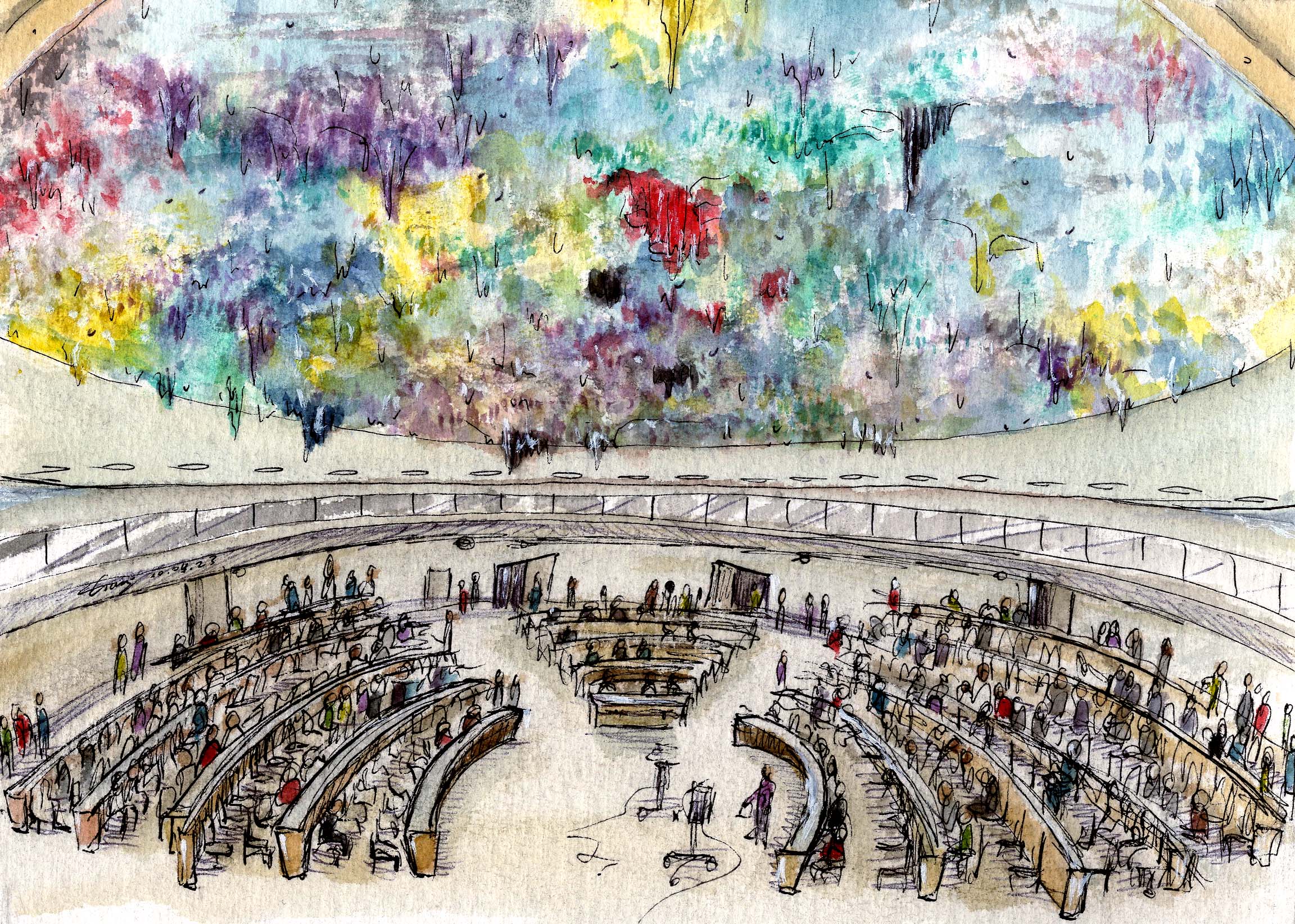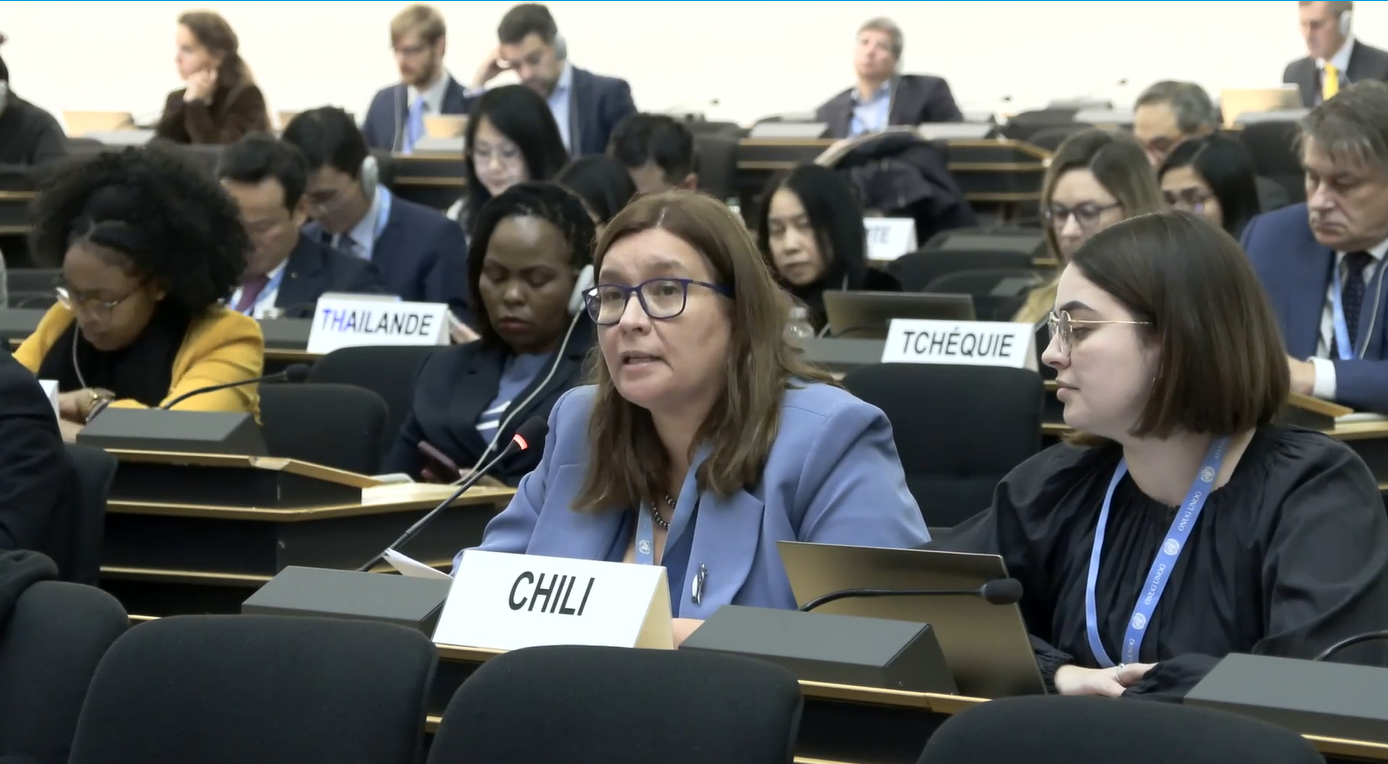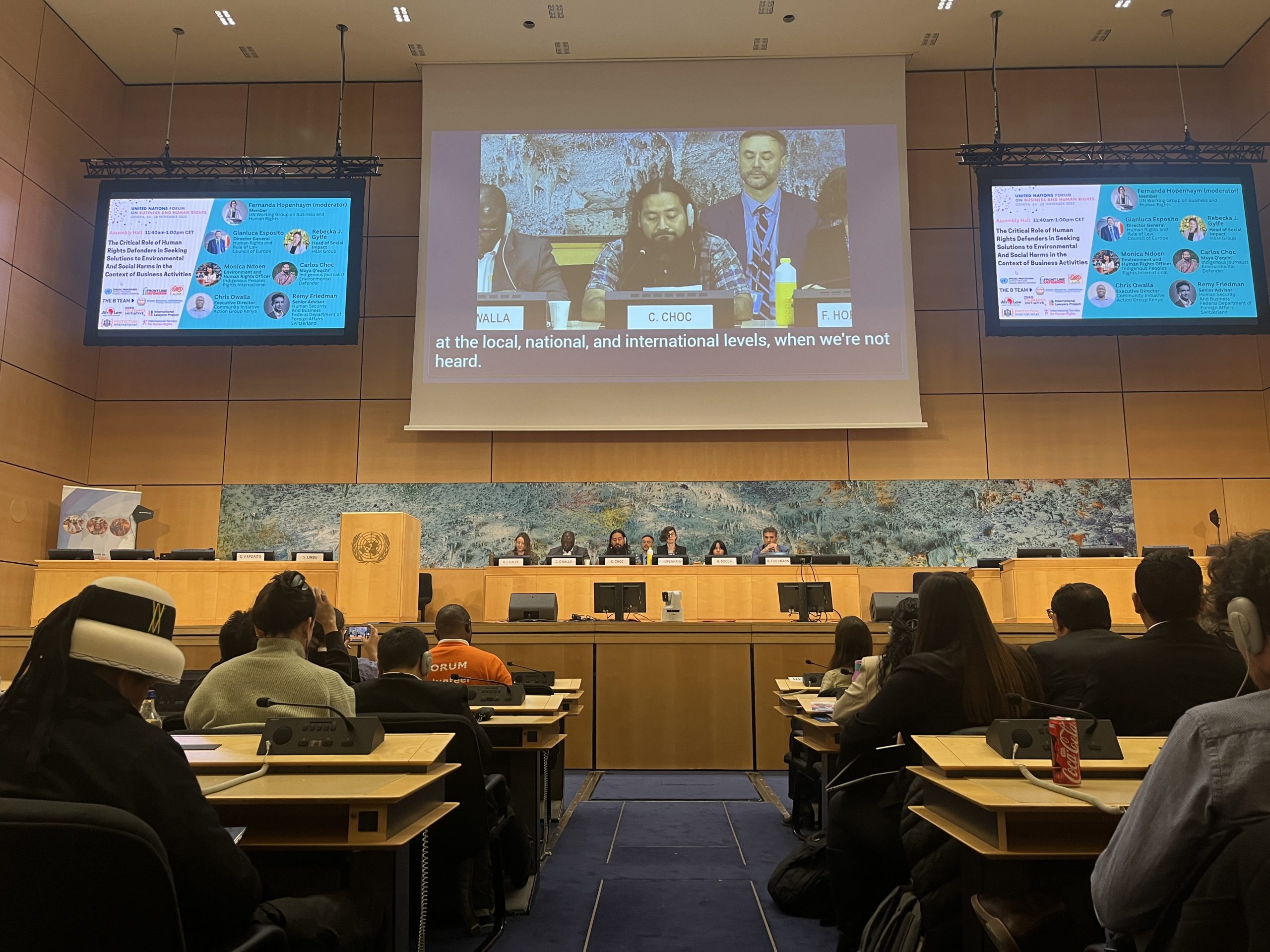TO: Permanent Representatives of Member States of the United Nations
RE: States should refrain from voting for Russia in upcoming UN Human Rights Council election
Ahead of the October 10 UN Human Rights Council election, we write to urge your delegation to refrain from voting for the Russian Federation. Russia seeks to return to the Council a year after the General Assembly voted to suspend its membership. The April 2022 suspension was a response to Russian atrocities and systematic attacks on Ukrainian civilians in the wake of its full-scale invasion of Ukraine on February 24, 2022. After the assembly suspended Russia, Moscow announced it was withdrawing from the Council altogether.
Russia does not belong on the Human Rights Council now any more than it did a year ago. In the past year Russian authorities have decimated human rights both within Russia and abroad. They have accelerated a massive crackdown within Russia, causing a human rights crisis unparalleled in Russia’s post-Soviet era. These actions reflect the Russian government’s continued contempt for the standards that Human Rights Council members are required to uphold and promote and make the country unsuitable for a seat on the Council. Russian forces have committed a litany of war crimes and crimes against humanity in Ukraine that have caused untold civilian suffering. Russian authorities have taken no steps to hold anyone accountable, have denied all wrongdoing, and have criminalized any discussion in the country of Russian forces’ violations.
In the past year the Kremlin intensified the all-out crackdown against Russia’s civil society that reached new proportions after the full-scale invasion of Ukraine. Parliament adopted a series of draconian laws expanding the definitions of ‘foreign agents’ and ‘undesirable organizations’ in order to obliterate civil society and free expression. Authorities have pressed charges against thousands of people for legitimate anti-war speech – using new censorship laws adopted shortly after the invasion – forcibly closed several prominent human rights groups, and sentenced two prominent opposition figures to up to 25 years in maximum security prisons on bogus charges, including high treason and extremism – merely for their peaceful opposition to the Kremlin and Russia’s war in Ukraine; many other activists were targeted with similar charges as well as a barrage of other charges from Russia’s extensive repressive toolbox. The report by the newly-appointed UN Special Rapporteur on Russia found that “often-violent enforcement [of new, restrictive laws]… resulted in a systematic crackdown on civil society organizations that has closed civic space and independent media and “led to mass arbitrary arrest, detentions and harassment of human rights defenders, peaceful anti-war activists, journalists, cultural figures, minorities and anyone speaking out against the war…”
There is no lack of credible documentation of atrocities carried out by Russian forces in Ukraine. The UN’s Special Monitoring Mission has published reports documenting torture, enforced disappearances, summary executions, and sexual violence against civilians in areas of Ukraine occupied by Russian forces. On September 25, 2023, the chair of the UN Commission of Inquiry on Ukraine stated that the commission was “concerned by the continuous evidence of war crimes committed by the Russian armed forces in Ukraine,” and that it had found evidence that Russian forces’ use of torture in several occupied areas has been “widespread and systematic.” It is investigating whether the latter, and Russian forces’ bombing of Ukraine’s energy infrastructure amount to crimes against humanity. Human rights groups have published extensive documentation of Russian forces’ use of torture, indiscriminate bombing and shelling, and forced transfer and deportation of Ukrainian civilians. Illegal deportations and unlawful transfers of Ukrainian children from occupied areas of Ukraine to Russia by Russian forces led the International Criminal Court to issue arrest warrants for Putin and his children’s rights commissioner Maria Lvova-Belova.
Russia has refused to cooperate with the mandate of the UN Special Rapporteur on Russia, with the Commission of Inquiry on Ukraine and it did not participate in the UN Human Rights Committee’s October 2022 review of Russia’s compliance with the International Covenant on Civil and Political Rights.
UN General Assembly Resolution 60/251, which created the Human Rights Council, urges countries voting for candidates to “take into account the contribution of candidates to the promotion and protection of human rights.” Council members are required to “uphold the highest standards in the promotion and protection of human rights” at home and abroad and “fully cooperate with the Council.”
By no measure does Russia meet these requirements. We urge you not to vote in favor of Russia’s candidacy.
Sincerely,
- Board of the Civil Society Forum
- CIVICUS
- Freedom House
- Human Rights House Foundation
- Human Rights Watch
- International Commission of Jurists
- International Federation for Human Rights (FIDH)
- International Service for Human Rights
- PEN America
- Physicians for Human Rights
- Society for Threatened Peoples
- World Organization Against Torture (OMCT)




